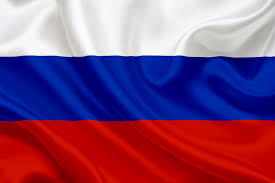
Practical information
This event is dedicated to the Russia/NIS Centre Corporate supports. By personal invitation only.
PROGRAM
9.00-9.30. Introduction
Thomas Gomart, Director of the French institute of international relations (Ifri) and Guillaume Schlumberger, Director for Defence Strategy, Counter Proliferation and Strategic Foresight, Directorate General for International Relations and Strategy, French Ministry of Armed Forces
09.30-11.00. Panel 1. Are the Foundations of the Putin System Solid?
Chair: Tatiana Kastueva-Jean, Head of Ifri’s Russia/NIS Center
- Russian Economy, more resilient that it seems?, Sergey Aleksashenko, Non-Resident Senior Fellow, Brookings Institution, Washington
- The Putin System and its Elite, Evgeny Minchenko, President and Chief Executive Officer of Minchenko Consulting, Moscow
- Potential of Social Protests, Françoise Daucé, Professor at the Center for Russian, Caucasian and East-European Studies at the School of Advanced Social Sciences Studies (EHESS), Paris
11.00-11.30 Coffee break
11.30-13.00. Panel 2. Russia and the Recent Developments in the Euro-Atlantic Space
Chair: Benoît Vitkine, Journalist at Le Monde – International Department
- What Tools of Influence? Julien Nocetti, Research Fellow, Russia/NIS Center, Ifri, Paris
- Moscow-Washington: An Impossible “Reset”? Thomas Graham, Senior Fellow, Jackson Institute for Global Affairs, Yale University, New Haven
- What will be Russia's strategy toward Europe? Timofei Bordachev, Director of the Center for Comprehensive European and International Studies, Higher School of Economics, Moscow
13.00-14.00 Lunch
14.00-15.30. Panel 3. Russia and the South Caucasus
Chair: Régis Genté, Correspondent covering Caucasus and Central Asia for Le Figaro
- A Strategic Regional Environment under Pressure (Syria, Iraq, Russia, Iran, Turkey), Thomas de Waal, Senior Fellow for Carnegie Europe, London
- Russian Hard and Soft Power in the South Caucasus, Sergey Markedonov, Associate Professor at Russian State University for the Humanities (RGGU), Moscow
- Georgia : A “Success Story”?, Nodar Kharchiladze, Co-Founder of the Georgian Strategic Analysis Center, Tbilisi
15.30-15.45 Coffee break
15.45-17.15. Panel 4. A Strategic Competition in Eastern Europe?
Chair: Céline Marangé, Research Fellow, IRSEM
- Four Years after Maidan: What progress has been made in Ukraine?, Oleksiy Semeniy, Director, Institute for Global Transformations, Kyiv
- China in Eastern Europe, Nadège Rolland, Senior Fellow, National Bureau of Asian Research (NBR), Washington
- Belarus, Russia’s Buffer State against NATO? Yauheni Preiherman, Head of the Minsk Dialogue Track-II Initiative, Minsk
17.15-17.30. Conclusions
Alexandre Escorcia, Deputy Director, Centre for Analysis, Planning and Strategy, French Ministry for Europe and Foreign Affairs and Tatiana Kastueva-Jean, Head of Ifri’s Russia/NIS Center

This seminar will be held in English, French and Russian with simultaneous translation, under the Rule of Chatham House.
This event will be held within the framework of the “Russia, Caucasus and Eastern Europe Observatory” with the support of DGRIS (Directorate General for International Relations and Strategy), French Ministry of the Armed Forces.
Related Subjects
Other events

EV Supply Chains for Japan and Europe: Strengthening Economic Security
Economic security aims to ensure the resilience of supply chains for key industries: the case of electric vehicle production in Japan and Europe will be discussed.

From Ambition to Action: Exploring Technological Partnerships with India
The 16th EU-India Summit, held on January 27th in New Delhi with European leaders António Costa, Ursula von der Leyen, and Prime Minister Narendra Modi, marks a significant milestone in deepening EU-India relations. At the same time, official bilateral visits from EU member states are on the rise, including that of the French President, who visited India in February to participate in the Artificial Intelligence Summit. As India asserts its technological ambitions and seeks to reduce its dependence on China, Europe is stepping up its efforts to diversify its strategic partnerships.






